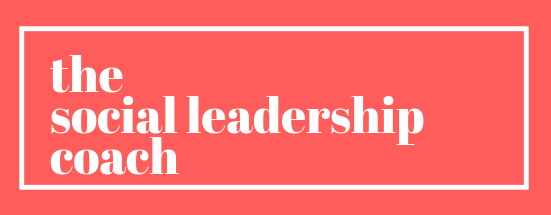This post is also available in:
 Spanish
Spanish
Social changemakers tackle the world’s most complex issues. Thus, they present unique challenges for coaches wanting to support them. In this blog, we will explore some of the common coaching challenges encountered by social changemakers and discuss strategies to overcome them.
Who are Social Changemakers?
Social changemakers (or social leaders) are people driven by a deep desire to create positive transformations in society. They deal with complex issues such as poverty, inequality, climate change, education, health care, peacebuilding, and human rights.
Some social changemakers work in corporate responsibility units, non-profit organizations or NGO’s, while others work independently as social entrepreneurs. Some are activists in civil society while others work in schools or hospitals.
Changemaker Coaching Challenges
According to the Coaching and Philanthropy Project, coaching could be most powerful when a changemaker or their organization is at an inflection point. Coaching can transform moments of great turmoil into opportunity.
For many, the pandemic has created such an inflection point. Over 66% of US non-profits reported that COVID-19 has had a negative impact on their organization. We see a similar scenario throughout the globe.
Below are some of the more common changemaker coaching challenges I have seen in my decade as a changemaker coach.
Complexity
Social changemakers are trying to solve the world’s most complex problems. These tend to be systemic and overwhelming. So, the odds are stacked against them.
Coaches can help social changemakers keep perspective, acknowledge systemic forces, and recognize their spheres of influence and control.
Burnout and Work-Life Balance
Changemakers often feel the weight of responsibility, constant setbacks, and systemic barriers. As a result, burnout and emotional exhaustion can occur. Some surveys estimate non-profit sector staff burnout rates at over 50%.
Coaches partner with social changemakers to develop resilience and self-care strategies. These include managing expectations, prioritizing self-compassion and self-care activities, as well as fostering a supportive network.
Uncertainty
Changemakers must grapple with uncertainty, ambiguity, and competing interests, both within and outside of their organizations.
Coaches assist social changemakers to navigate this complexity. They can offer tools and frameworks for mindset shifting, reframing, problem-solving, decision-making, and managing conflicting priorities. Thus, changemakers bolster their capacity to adapt and learn from failures.
Constructive Relationships
Changemaking can feel lonely and isolating at times. Building relationships can be challenging, particularly when facing resistance or working with diverse perspectives. However, constructive relationship-building is essential for social changemakers to mobilize support, collaborate with stakeholders, and create lasting impact.
Coaches can make an isolated changemaker feel seen and heard. Coaches support changemakers in honing interpersonal skills, enhancing communication strategies, and facilitating conversations. They can also help changemakers develop empathy and emotional intelligence, enabling them to build strong and meaningful connections with others.
Scarcity
Social changemakers never seem to have enough resources to tackle such huge problems. They often feel like they are making due or spending too much time chasing financial grants. This can take a big mental, emotional, and operational toll.
Coaches can help social changemakers ease their emotional burden and shift their mindset. They may also support action planning around financial management and fundraising.
Leadership Challenges
Many social changemakers have limited management education. Yet, they are often expected to lead movements, negotiate, supervise staff, make presentations, gather data, create plans, balance budgets, write proposals, manage Boards of Directors, etc. These leadership challenges can seem daunting.
Coaches partner with changemakers to build the necessary leadership skills to meet these challenges.
Final Thoughts
Coaching provides invaluable support to social changemakers, helping them overcome challenges and maximize their potential to create meaningful societal transformations. By addressing the common coaching challenges faced by social changemakers, coaches can empower them to navigate complex environments, manage their well-being, and build sustainable relationships and resources. Ultimately, coaching serves as a catalyst for social changemakers to drive positive change and make a lasting impact on the communities they serve.
Enjoyed this Article?
Please comment and share this article with your network using the social media buttons below. This is the first article I’ve written with the help of AI – wow! You can also check out other articles in my blog. Don’t forget to subscribe to this site for exclusive offers and content. I respect my subscribers and their privacy. Thanks!








2 Comments
Leave your reply.